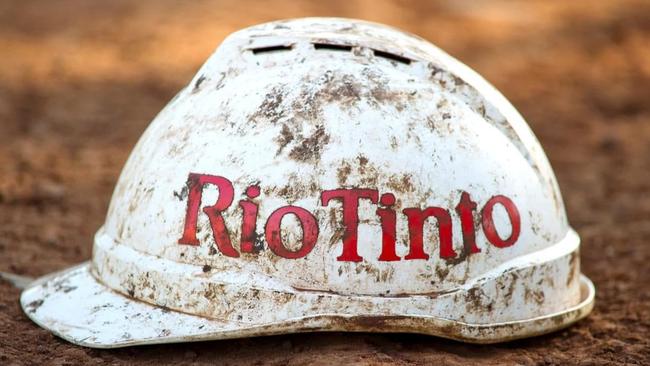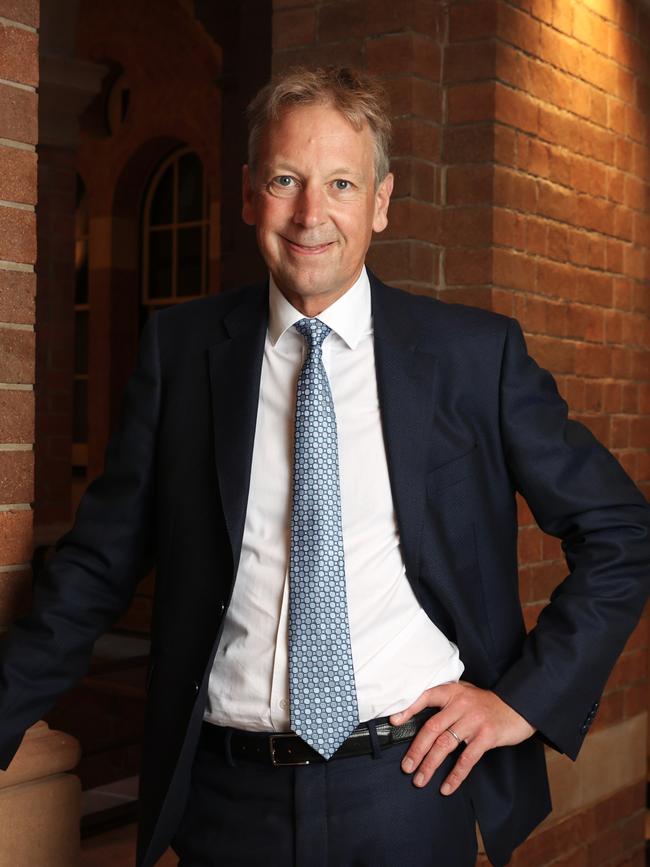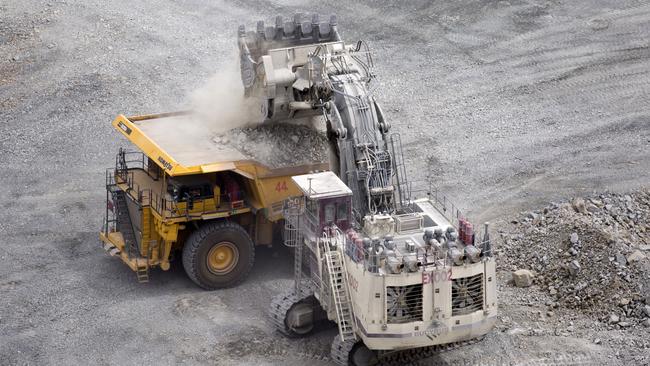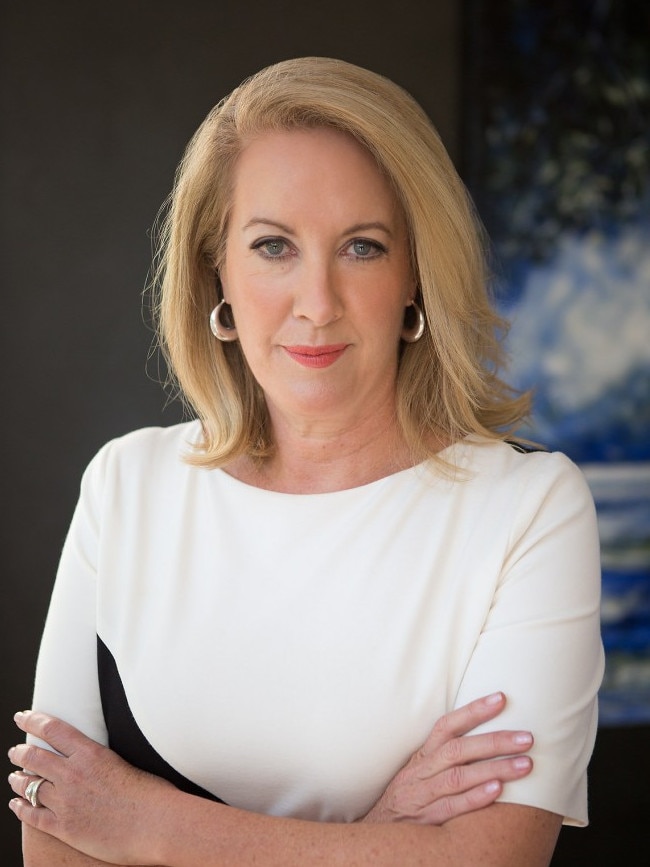Broderick’s two-year progress report was released to Rio staff
Overhauling a culture of sexual harassment and bullying is not a linear exercise and the Rio Tinto boss is finding out the tough way, as its two-year progress report is released to staff.

Jakob Stausholm is finding out about one of the toughest lessons when it comes to a major overhaul of workplace culture. It’s a long, hard slog, and progress often feels like it’s going backwards.
That’s what the Rio Tinto boss now faces, two years into his major effort to humanise his giant mining machine to drag parts of his workforce out of the thuggish behaviour of the past and into the 21st century.
After hundreds of millions of dollars spent upgrading mine facilities and countless hours going into training and management retooling, as well as determined efforts to stamp out bullying, harassment and racism, Rio Tinto seems to be getting worse on many and serious key measures of its workforce.

However, that’s exactly the way major cultural programs play out. Progress is not liner, and resistance to change can draw out increased rates of poor behaviour among some parts.
Add to this trying to push through change programs with operations scattered across the world in often remote and harsh locations, and it all feels like the exercise is a near impossible challenge.
Stausholm admits he didn’t have a map or compass when he started out two years ago on the road to overhauling the workplace culture at Rio.
But he knew where he needed to be. Harassment, bullying, sexual assaults were rife at Rio’s mine sites, particularly in the Pilbara. The ingrained, hardened culture was driving workers – especially women – away. And that also meant the best talent or new recruits would simply leave.
“I didn’t really know how to go about it when we started this journey,” he tells The Australian in an interview. “At the time I said, the only thing I know is that I cannot change the culture, but we can decide to change the culture”.
Coming out of the Juukan Gorge cave scandal, the newly-appointed Stausholm had a mandate and backing from the board to change the way the miner did business. Compounding this need for change were sickening revelations of sexual assaults across the Pilbara iron ore business.
Two steps back
The Rio boss commissioned the first audit of workplace culture by former Sex Discrimination Commissioner Elizabeth Broderick. The results were as shocking as they were confronting. One-in-three workers had experienced some form of bullying, some 16 per cent of women had been subject to sexual harassment and racism was prevalent.
More than 26 recommendations came out of the first Broderick report, forming the Everyday Respect program. Rio spent hundreds of millions of dollars upgrading security and facilities across its remote operations to make its workplaces safer for everyone.
It also invested heavily in training and education right down the line all while driving the message home to 57,000 staff and contractors about what was acceptable behaviour.
So it must have felt like a blow to Stausholm and his top executives when Broderick’s two-year progress report that was released to staff on Wednesday showed behaviour across many areas were getting worse or had barely changed in others.

Indeed, the latest report revealed eight people experienced actual or attempted sexual assault or rape in the past year. This compares to five in 2021. Some 32 people, nearly all women, reported experiencing pressure or requests for sex acts from 37 people in the first report.
Across the board 39 per cent of workers reported experiencing some form of bullying compared to 31 per cent previously.
Stausholm says the numbers were unacceptable. Clearly there was much more work to do and he intended to stay the course.
“When you hear there’s still unacceptable behaviour, and people are suffering from it. It’s not good enough”.
“We also knew that it would take a long time”.
Some staff have been sacked around the more serious complaints, although Rio was not specific with details.
More reporting
Broderick briefed the Rio board last week on her latest findings, and here she pointed out that success in the cultural change program such as these often seems counter-intuitive. The first thing usually noticed when change is underway is more reporting of incidents, which quickly inflate the absolute numbers.
“This is really at the heart as to why the numbers doesn’t make a lot of sense, because basically the more psychological, safe and environment you get, the more people will be prepared to come out with it”.
“And that was actually a big learning from the first Broderick report is that we didn’t hear things”.
“It’s better to get it out and address it so that you get the right culture”.

“We all very numerical in business and around measuring success. But ultimately you want to have more reporting, and over time, you will hopefully have the right psychological comparable atmosphere so that you can see reporting going down”.
There were some positive threads from the latest report. There had been a 46 per cent to 50 per cent lift perceived improvement in relation to preventing bullying, sexual harassment and racism. And two-thirds of staff surveyed were confident Rio would make a meaningful difference in each area over the next two years.
Over the coming year, Rio will double down on training, particularly for site managers and include contractors in training. Include behavioural values in remuneration and bonuses, and upgrade more mine facilities.
No targets
In a departure from his rival BHP, the Rio boss has backed away from rolling out gender targets. Women make up 25 per cent of total workforce and 30 per cent of senior leadership.
The Rio boss says it has to be a “just transition” built around natural attrition and not artificially force out men for the sake of hitting the target.
The trend is very clear, we keep on strengthening the female participation in the workforce at all levels. But finding the right balance is tricky, and…it does create some tension”.
Stausholm doesn’t buy the suggestion that there will always be pockets of bad behaviour in remote mining sites or Rio is imposing western cultural standards on operations and workers across 35 countries.
“This is ultimately everyday respect, about universal behaviours as how we are as a human and everyone likes to be respected as an individual, going to work”.
Not just for Rio, but for all companies, the more softer parts of reforming corporate culture at times might seem to some like ticking a necessary ESG box for management, but there is a real financial edge to all this.
Study after study has demonstrated a strong line between diversity and organisational performance. Trust builds better teams and attracts new outside talent with new ideas and deeper engagement across the workplace. All these are the right ingredients for innovation and a platform to boost productivity.
“This is not just something we’re doing because it’s the right thing and the good thing to do,” Stausholm says. “It is a key component to creating a high-performance company”.
johnstone@theaustralian.com.au






To join the conversation, please log in. Don't have an account? Register
Join the conversation, you are commenting as Logout